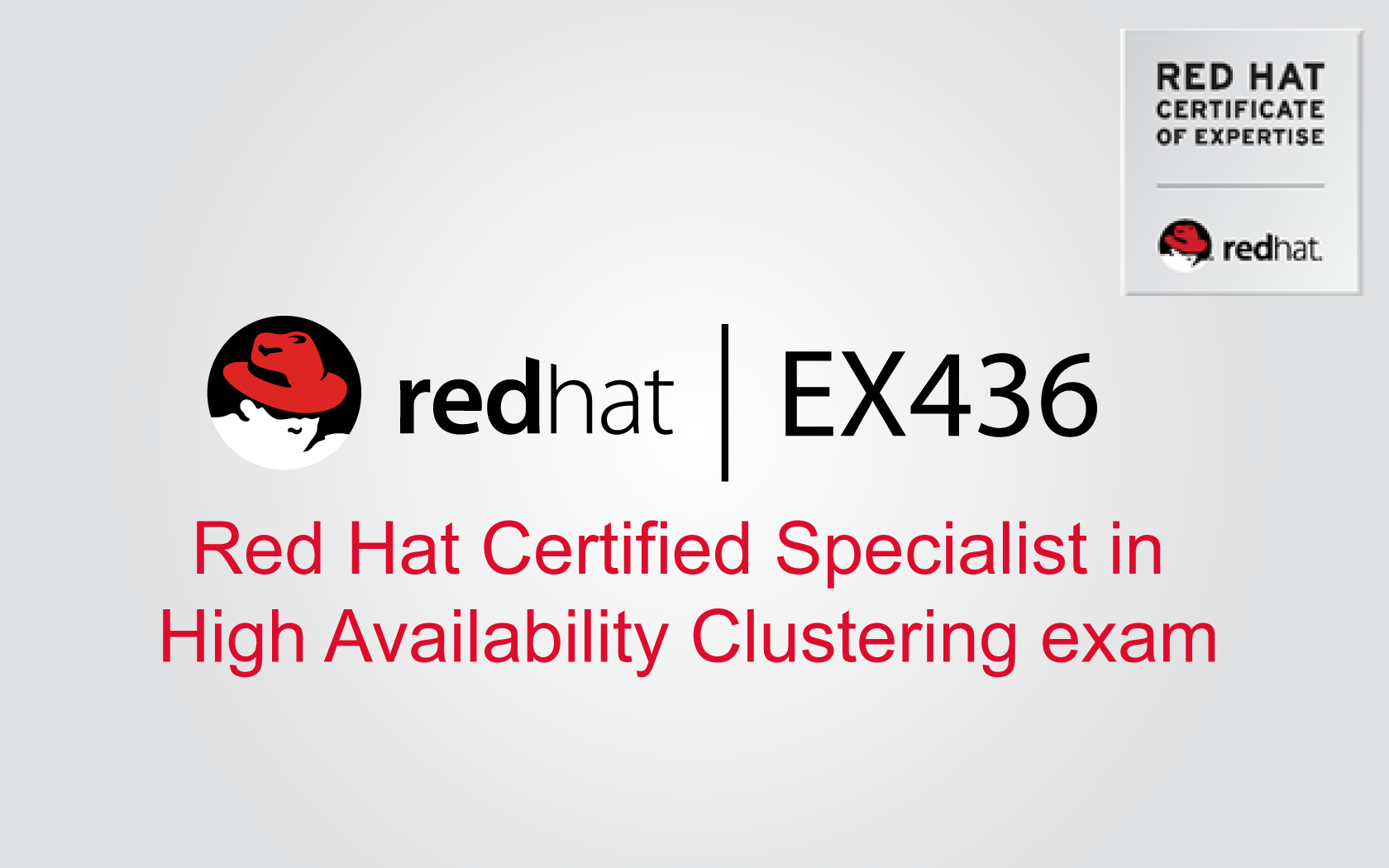- Home
- Infos Certification

EX436 - Red Hat Certified Specialist in High Availability Clustering exam
Red Hat recommends that candidates become a Red Hat Certified System Administrator (RHCSA®) or a Red Hat Certified Engineer (RHCE®) before attempting this exam but neither is required.
Duration: 3h
COURSE PROGRAM
The Red Hat Certified Specialist in High Availability Clustering exam (EX436) is a performance-based test of the skills and knowledge needed to implement high-availability services on Red Hat® Enterprise Linux® using the Red Hat Enterprise Linux High Availability Add-on.
- Experienced Linux system administrators responsible for the planning, deployment, and management of more than 1 physical or virtualized server
- An RHCE interested in becoming a Red Hat Certified Specialist or an RHCA
Exam candidates must:
- Red Hat recommends that candidates become a Red Hat Certified System Administrator (RHCSA) or a Red Hat Certified Engineer (RHCE) before attempting this exam but neither is required.
- Have Red Hat High Availability Clustering (RH436) or equivalent experience.
- Understand that real-world system administration experience is also an important aspect of preparation for the exam.
- Review exam objectives for the Red Hat Certified Specialist in High Availability Clustering exam.
- Red Hat Enterprise High Availability Clustering (RH436)
- Red Hat Enterprise High Availability Clustering with exam (RH437)
To help you prepare, review the exam objectives which highlights the task areas you can expect to see covered in the exam. Red Hat reserves the right to add, modify, and remove exam objectives. Such changes will be made public in advance.
Candidates should be able to perform the tasks listed below:
- Configure a high-availability cluster, using either physical or virtual systems, that:
- Utilizes shared storage.
- Provides service fail-over between the cluster nodes.
- Provides preferred node for a given service.
- Selectively fails over services based on specific constraints.
- Preemptively removes non-functioning cluster members to prevent corruption of shared storage.
- Manage logical volumes in a clustered environment:
- Create volume groups that are available to all members of a highly available cluster.
- Create logical volumes that can be simultaneously mounted by all members of a high-availability cluster.
- Configure a GFS file system to meet specified size, layout, and performance objectives.
- Configure iSCSI initiators.
- Use multipathed devices.
- Configure cluster logging.
- Configure cluster monitoring.
